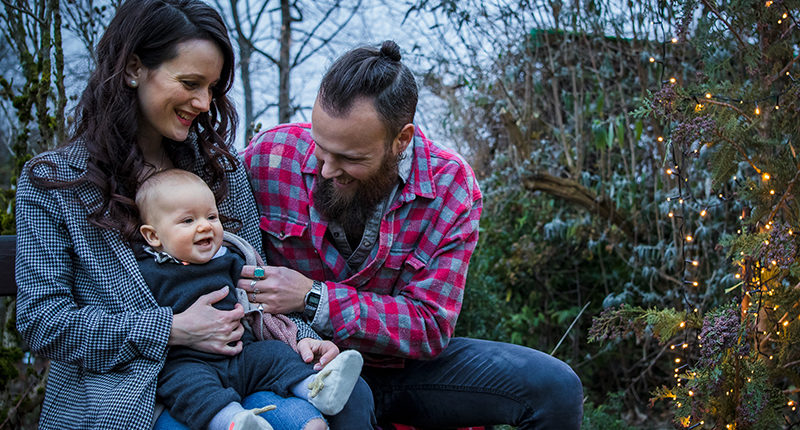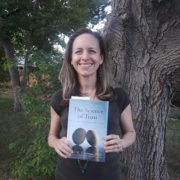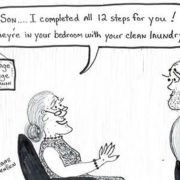Are you struggling to control your use of alcohol, drugs, prescription medication, food, porn/sex, technology, money, work, or something else?
Are you experiencing adverse consequences because of your use and fear you could lose the people and things you love unless you seek help?
Is your loved one denying they have a problem? Refusing to get help? Or threatening things will get worse if you bring up their use again?
Are you lying awake at night or walking on eggshells during the day worrying about your loved one relapsing after they’ve come home from treatment?
If you and/or your loved one is struggling with substance use and other addictive behaviors, life can feel out of control.
Maybe, you’re at the beginning of this journey and feel you’re just interested in finding a healthy balance or would like some strategies in cutting down or moderating your use? Perhaps you experienced the first negative consequence of your use (ex. missed an important event, had a fight with your family members that got out of hand, or blacked out)? However, you feel certain that your behavior is really not a problem, but are willing to seek help just to mollify your worried spouse or parents.
Or, you might be farther along and are beginning to worry that your use of a substance or another addictive behavior might continue to cause you problems. Perhaps you got your first DUI? Your spouse or parents are threatening to kick you out? The things you value are in jeopardy, such as your work, physical and emotional health, finances, passions/hobbies, your relationships, etc.?
Or, perhaps you’re in DEEP CRISIS because the “outhouse has collided with the windmill”. You know what I’m talking about! Even if you don’t think you’ve hit your “bottom”, life might feel precarious enough that you are willing to seriously invest in help this time. Perhaps you just got fired from a job? Your spouse or parents have given you an ultimatum to seek help or pack your bag? You wound up in a detox, hospital, or jail cell? Your kids won’t talk to you? Maybe this IS your wake up call?
If you are the family member witnessing (and trying to intervene in) this roller coaster or trauma of watching your loved one continue to engage in self-destructive behavior that often also hurts you and others around them, you likely have felt overwhelmed and in deep crisis way before your loved one hit bottom. You both are desperately wishing for a way out of the pain.
Many couples and families struggle with substance use and other addictive behaviors
Statistics show that approximately 1/3 of couples and families are affected by alcohol use disorder while additional families have one or more members who struggle with other addictive behaviors. Although couples and families can feel torn apart by a loved one’s addictive behavior, with help from counseling and support groups, you can reunite and make your relationships and quality of life stronger than they were before.
Wherever you (& your loved one) are on the continuum of use and recovery, working with a certified addictions counselor and marriage and family therapist can help.
With specialized help, you will be able to uncover the roots of your substance use and other addictive behaviors in order to address and heal from underlying issues. You will also learn a toolbox of alternative healthy coping skills (including connecting with your inner wisdom and ability to self-soothe) to utilize in lieu of your substance or other addictive behaviors.
Counseling can improve your relationships too because you will connect more with your emotions and needs and become more adept at turning to your loved ones, your recovering community, and yourself instead of your addictive behavior to meet your needs. You will also learn how to more skillfully meet your family member’s needs.
I respect multiple paths to healing and will collaborate with you.
Whenever possible, I provide a variety of treatment and support group options depending on your unique situation (Moderation Management, Women for Sobriety, Refuge for Recovery, Phoenix Multisport, Mindfulness Meditation Recovery, AA/NA, Al-Anon, CoDA, etc.) because there really are hundreds of ways “up the mountain”.
You and your loved ones (if present) will decide on your treatment goals. My job, as a counselor, is to help you work through barriers to achieve your goals.
As a certified addiction specialist (CAS), I can assess whether moderation or abstinence is an appropriate goal.
Since approximately 30% of Americans struggle with alcohol use disorder (not addiction) and others have behavioral issues related to everyday needs, such as food, work, technology, and sex, it is crucial that I am familiar with strategies to help my clients achieve moderation since abstinence is not always an appropriate or realistic goal. On the other hand, if my assessment concludes that you would benefit from specialized treatment beyond what I offer, I will respectfully recommend the most effective programs for your specific issue.
As a marriage and family therapist, I utilize a systemic approach that can include ALL family members in the recovery process:
For couples
Did you know that “satisfying family relationships constitute one of the greatest predictors of long-term recovery”? Conversely, did you know that long-term recovery increases your chances to have healthy relationships? By investing in evidenced-based therapy for couples in recovery, you increase your odds of beating the statistic that couples affected by addiction have a 4-7 times higher rate of divorce.
The sooner you and your partner receive support in healing from the effects of addiction and codependency and learn healthier ways to communicate, resolve conflict, and meet each other’s needs, the stronger your individual and couple recovery will be. In couples therapy, you will:
- Move out of trauma, fear, and mistrust and into connection through attunement and action.
- Create a relationship based on “true mutuality” in which both partners commit to doing whatever it takes to make their partner feel safe, secure, loved, and vibrant.
- Restore trust by learning and implementing the skills necessary to have your partner’s back.
- Resolve feelings of resentment, restore appreciation, and rekindle passion and joy.
I also provide individual support, especially for the family member who is not participating in treatment. I utilize research-based materials from authors who have studied both the condition and healing process from codependency, ex. Loving Someone in Recovery by Beverly Berg.
For families
When a parent is struggling with addiction or in early recovery, I provide experiential family therapy sessions that give children and teens an equal voice in expressing the pain of addiction and hopes for a healthier family dynamic.
If you’re a parent of a young adult who is struggling with a substance use disorder, you play an instrumental role in your teen and young adult’s recovery.
In family therapy (with your entire family, just your spouse, or alone), you will:
- Learn what works (to support recovery) and what doesn’t (enables child’s addiction to progress)
- Get ideas for maintaining your sanity and validation and support for your painful experience.
- Receive tools for setting and maintaining boundaries, loving your child in a way that supports their recovery, and preserving your own life (marriage, family, employment, home, health, etc.)
- Find out how you can get your teen/adult child into treatment, support their recovery for the long-term, and help them launch into an independent, responsible, and respectful adults.
For individuals in recovery from addiction and/or codependency
Recovery is more than sobriety. Uncover, discover and discard everything you’re not, and rediscover your true nature. This process of finding your true self will allow you to cross a bridge into a new life and experience self-love, forgiveness, and your full potential!
If you’re in long-term recovery from addiction or enabling:
- Process your relationship with your substance/addictive behavior that a part of you wants to continue using and another part wants to give up due to painful consequences.
- Receive a “toolbox” of support for your goal of recovery and reconnection with your true self.
- Be empowered to speak your true voice, set healthy limits, and empower others in doing the same.
For adult children of alcoholics and addicts
You may find that you’re struggling to let go of resentments, forgive your parents, and let them back into your life. Therapy can help you reconcile with your parents and form a healthier relationship with them now. Or, if you decide that serenity, not reconciliation is your goal, I can help you let go of old resentments, experience radical acceptance, and move forward with your life (regardless of what actions your family member takes).
What sets me apart as a substance abuse, addiction and recovery therapist:
- I have both clinical and street wisdom. Having experienced addiction in my family of origin and personal life and working in almost all levels of addiction treatment from residential, intensive outpatient, DUI groups, family programs, and private practice, I utilize an extremely empathetic, skillful, and honest approach with individuals and their families.
- I continue to do my own personal and relational recovery work and professional development. Beyond earning my CAS, I have completed The Gottman Institute’s training, “Couples and Addiction Recovery”, PACT Level I training (influenced by John Bradshaw), and RLT Level II training (influenced by Pia Mellody).
- I created a powerful piece to illustrate the family’s story: Addiction Divides Us, Recovery Unites Us and support clients who wish to also use creative therapy modalities for telling their story and deeply healing.
I am considering counseling, but still have a few concerns and questions…
Isn’t counseling expensive?
An untreated substance use or other addiction is far more expensive than the cost of treating it. You might be saving your marriage and/or your loved one’s life. This is priceless.
I’m afraid if I confront my family member again about their substance use or other addictive behavior, they will be mad at me and follow through with their threat, (to leave or to hurt themselves or me) or they’ll refuse to attend the counseling session.
Sometimes the person struggling with substance abuse or other addictive behaviors is relieved to be encouraged to seek the help they have been desiring, but felt too much shame to ask for it. Other times, the individual with the substance use or other addictive behavior will consciously launch threats, turn the tables and blame their partner, or do something else in a desperate attempt to justify their continued use and/or deter family members from insisting that they get help.
While it can feel incredibly frightening to stand up to your loved one and insist on recovery and healthy intimacy, unconsciously many loved one’s want the same thing. They’re just terrified to live without a coping strategy that has become like air is for us to breathe. No family member needs to have this talk alone. Counselors, interventionists, individuals in recovery (especially from 12 step groups), and friends and family can all come together to have a “love first” conversation at which everyone’s voice can be heard.
If your loved one refuses to attend the counseling session, let them know that you’re still going with the rest of your family to talk about your concerns and discuss a plan to help them. Let them know you hope they’ll attend so they can contribute their ideas to a plan that’s going to be made for them.
Why do I need to go to couples or family counseling when my family member has the substance/addiction problem?!
Substance use and other addictive behaviors affect everyone in the family. Everyone deserves to heal and family members benefit when they receive support in repairing their relationships. Research also shows that “satisfying family relationships constitute one of the greatest predictors of long-term recovery”
Next steps…toward healing from substance use, codependency, and other addictive behaviors
Whether you’re interested in an in person session or online session~
Simply contact me for a free 15 minute phone consultation (for individual clients) or 20 minute Zoom consultation (for couples & families). You can conveniently schedule your consultation on my on-line calendar or call Lana Isaacson, LCSW, CAS, Certificate in Marriage and Family Therapy at 720.939.2189.
What clients are saying…
“We learned how to rebuild trust and find ways to build a stronger foundation after the devastation active alcoholism and porn addiction has caused in our marriage.”
Contact Lana today if you would like to pass down the best legacy~ the gifts of recovery and healthy intimate relationships to future generations.
Free Therapy Consultation
Book Your Free Consultation Now
20 minutes via Zoom with couples & families
15 minutes via phone or Zoom for individuals







